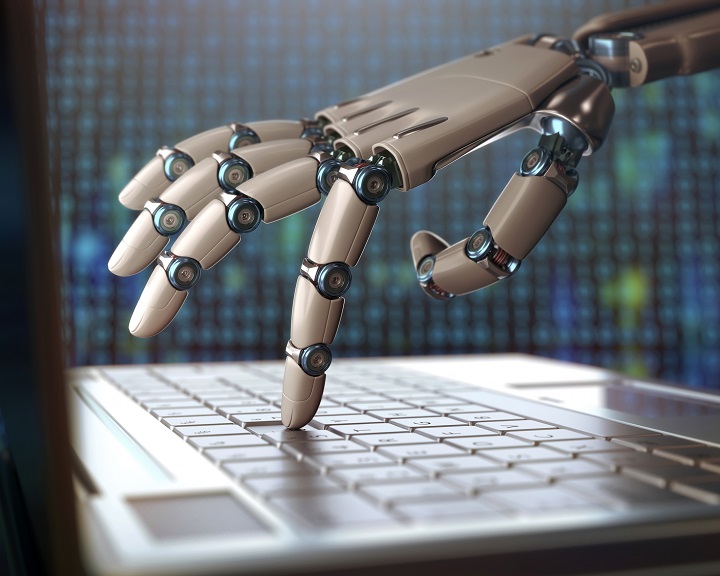
Over the last two years, organizations of different sizes and industries have realized, even more, the critical role technology and innovation play in business and society. The latest developments in technology provided more ways to ensure more connected enterprises, enabling them to survive and thrive amid the ‘never normal.’
However, these advancements in technology have just begun. As organizations prepare for the post-pandemic world, technologies that have been introduced in recent years are expected to continue evolving. The latest advances will also further transform how people interact and work.
Here are the tech trends that businesses need to look out for this 2022 as listed by SAP SE (NYSE: SAP).
Embracing Digital Transformation
Since the pandemic started, the speed at which digital transformation is fundamentally changing the business landscape has dramatically increased. The developments that could have happened in a decade or so were made possible overnight in many industries.
In the Philippines, the digital sector contributes significantly to its economy. This reality indicates that organizations in the private and public sectors will continue strengthening their digital transformation initiatives. Backed by strong government support, these transformations can unlock PhP5 trillion worth of economic value by 2030, according to a recent AlphaBeta and Google report.
Nurturing Sustainability
Nowadays, embracing sustainability has become an integral part of organizations, with business leaders considering it a strategic priority. Aside from top and bottom-line, forward-looking organizations add sustainability and even purpose as dimensions to driving business success.
Among these organizations is Metro Pacific Investments Corporation (MPIC). As a leading infrastructure investment company, MPIC commits to contribute to the achievement of the 17 United Nations Sustainable Development Goals (SDGs), particularly SDG 9, which seeks to ‘build resilient infrastructure, promote inclusive and sustainable industrialization, and foster innovation.’
Recently, MPIC strengthened its digital core as it embraced cloud solutions that can help consolidate, modernize, and standardize its enterprise resource (ERP) systems on a single platform. The integration into the cloud is part of the group’s sustainability philosophy of integrating business and environmental stewardship into their investment strategies. It helps improve its operations and augment sustainability initiatives, especially since SAP, MPIC’s technology partner, embeds sustainability into its core business processes.
Meanwhile, consumers are making apparent shifts to more sustainable products and services. According to a Kantar report, 75 percent of Filipino consumers seek out brands that offer ways to alleviate impacts to the environment. Even employees now make career choices based on their employer’s responsibility towards the planet. Thus, it is now even more integral to invest in innovation that considers environmental welfare while fostering economic and social development.
Integrating Decision Intelligence, Hyper-automation

In the Philippines, the Department of Trade and Industry noted that Artificial Intelligence (AI) adoption can increase the country’s gross domestic product (GDP) by 12 percent or equivalent to $92 billion by 2030.
Digital tools like AI, including augmented analytics and simulations, make “Decision Intelligence” a realistic approach to improve organizational decision-making. Each choice or decision in such a system result from multiple process iterations, refined with the help of analytics and data intelligence. With these digital tools, decision intelligence may support and enhance human decision-making and potentially automate it, hence augmenting organizational processes to be more efficient.
Meanwhile, scalability, remote operation, and business model disruption are also becoming possible with the use of Hyper-automation. Before the pandemic, businesses have been automating many processes through technologies like Robotic Process Automation (RPA). This trend will continue to grow for automating business and IT activities using a disciplined, business-driven approach.
Rising Low-Code, No-Code Tech
As content creation becomes even more relevant, graphic and website designs have been streamlined so users can simply “drag” and “drop” elements to create engaging content. This trend will extend to no-code AI, where users can create systems by simply “dragging” and “dropping” ready-made modules, removing the “programming language” barrier through simple interfaces. Consequently, it will allow users to create complex and robust AI systems.
Ensuring Total Experience (TX)
Due to the pandemic, organizations needed to have an excellent Total Experience (TX) strategy or a holistic program that combines customer, user, and employee experiences. With this strategy in place, organizations can help enhance customer satisfaction and employee productivity.
Organizations need to focus on weaving in these experiences instead of working on them individually to help ensure that they will be more satisfied as teams that work as an integrated unit. This trend is expected to continue as businesses eliminate communication and process silos and emphasize providing unified experiences to their employees remotely working while interacting with customers.
Collaborating with a Technology Partner
As these trends arise, organizations need a technology partner to help them achieve their business goals this year and beyond. For SAP, embracing technology means ensuring that the organization becomes an intelligent enterprise.
As a technology partner for businesses in the country, SAP helps make it easier by offering solutions like Rise with SAP, an intelligent enterprise framework to help kickstart businesses’ digital transformation journey. In the Philippines, MPIC is the first organization to adopt this cloud technology through this Business Transformation as a Service (BTaaS), offering consolidated solutions and services needed for business transformation in one package.
Rise with SAP also includes SAP and its whole ecosystem of partners assisting organizations in changing at their own terms and pace to be an intelligent and sustainable enterprise by simplifying engagement and providing a guided journey.

